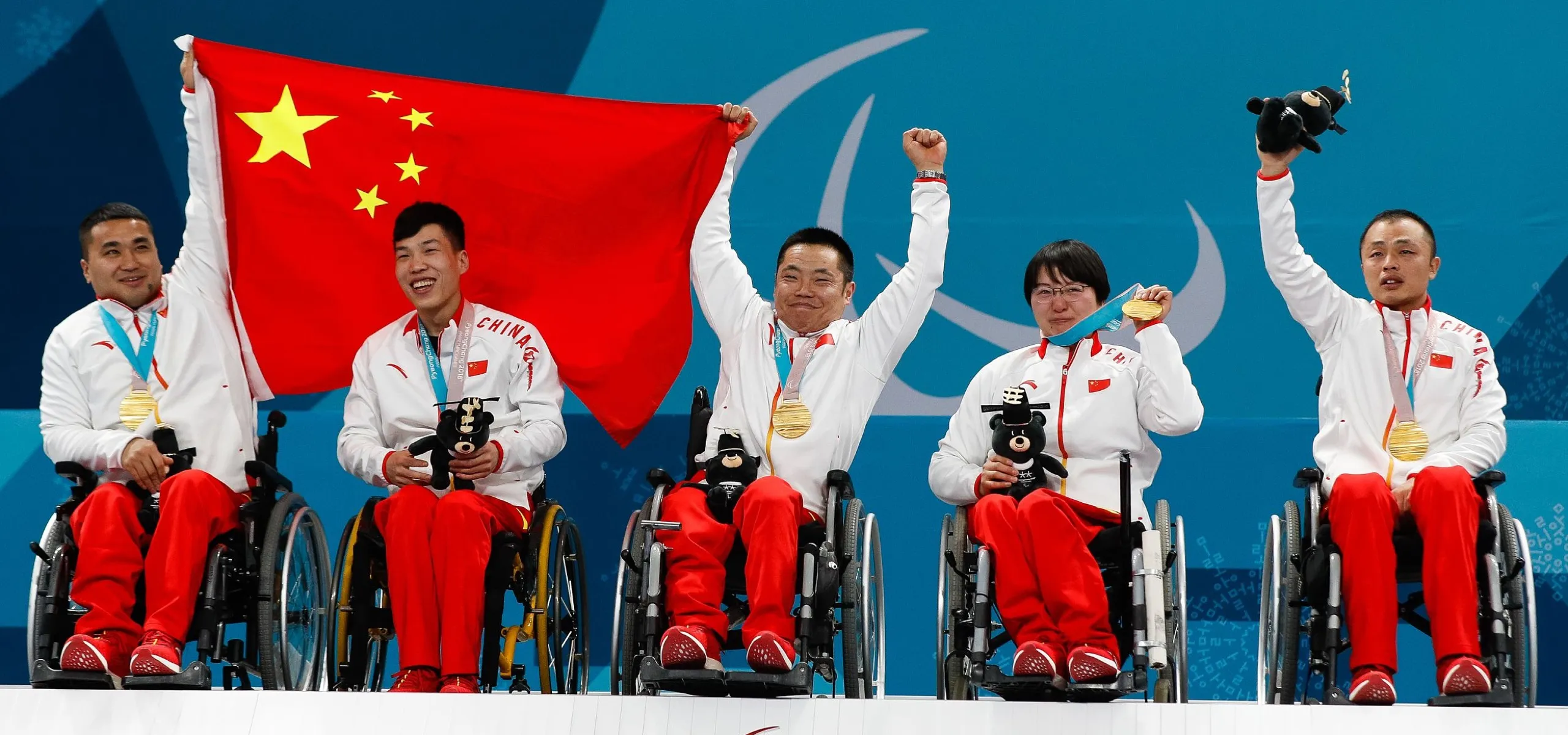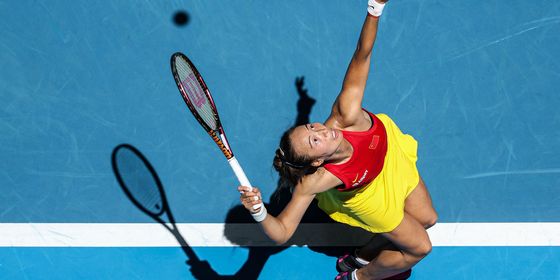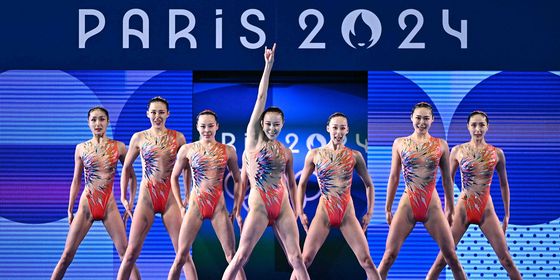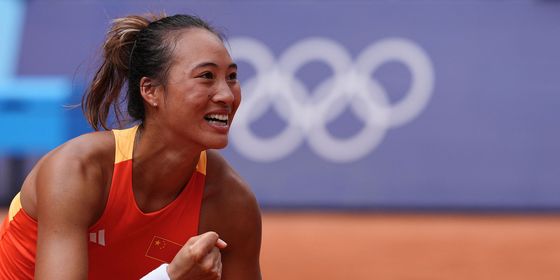How China went from one medal to topping the medal table in 20 years of Winter Paralympic participation
Wang Jinyou drove furiously at the snow-covered ground, driving his skis forward with the single pole he carried in his hand. As he eventually crossed the finish line of his 10-kilometer cross-country para-skiing event, exhausted having left every ounce of effort on the Salt Lake City Winter Paralympic course, he looked up to see his finishing position: 18th out of 20 (with two of his competitors disqualified).
The result may not sound impressive, but even making it to the Winter Paralympics had been a feat for the 28-year-old Wang, who took up para cross-country skiing just three months before the Games began. When a Japanese reporter asked Wang how he managed to compete at the Winter Paralympics with so little training, he replied: “Whatever Chinese want to do, we can achieve.” Wang, who had lost one of his arms at the age of 22, was one of just four Chinese athletes to compete at the 2002 Paralympic Winter Games. Shortly after his efforts in Salt Lake City, he claimed fourth place at the World Championships in Germany.
The 2002 Games was the first time the PRC sent athletes to a Winter Paralympics—a historic and overdue moment in China’s sporting history. At those Games, the eighth edition of the Winter Paralympic Games, China sent four competitors—three in cross-country skiing and one in alpine skiing—and achieved no medals.
In fact, the PRC did not win a medal at the Winter Paralympics until the Pyeongchang Games in 2018, where it was victorious in the wheelchair curling event. At the 2022 Beijing Winter Paralympics, however, the Chinese team is enjoying unprecedented success, with athletes entered in every discipline, and the team currently sitting at the top of the medal table with 14 golds, and 47 medals overall.
But back in Salt Lake City, the sixth place achieved by Wang’s teammate Han Lixia in the vision impaired downhill skiing competition was considered a heroic effort. Since 2002, Winter parasports consistently struggled for recognition, funding, and facilities in China, all factors that contributed to poor results in the Winter Paralympic Games.
Modest increases in the number of athletes China sent to Paralympic Winter Games did not bring medal success or great public attention. While China has topped the Summer Paralympic medal table at every Games since the 2004 Athens Olympics, in 2006, just eight athletes represented the PRC at the Paralympic Winter Games in Turin. In 2014, there were still only 10 competitors on the team, and no alpine skiers qualified. That year, ten of China’s Paralympians were amateurs, including a factory employee and a social worker, according to Zhao Suijing, head of the Chinese Paralympic Sports delegation in a report by Xinhua News. Twelve years later, the team managed to send 26 competitors to Pyeongchang and won its first medal.
For most of this period, most of China’s Winter Paralympians were gifted winter sports athletes who developed impairments during their career, and were then transferred straight into para-sports. Many others were transferred from summer parasports to winter ones. Liu Zixu, a 24-year-old para-archer, switched to the sitting para-biathlon to clinch China’s second-ever Winter Paralympic gold in the men’s sprint in 2022; and 28-year-old Liu Sitong is a para hand-cycling champion who also won silver in the giant slalom sitting event in Beijing.
In the past, poor planning and lack of training opportunities were significant problems for Winter para-sport athletes. Chinese cross-country skier Du Haitao and his three teammates began preparing for the cross-country skiing 4-by-2.5-kilometer open relay just four months before the Sochi Winter Paralympic Games in 2014—they finished seventh out of ten. In his individual event, Du, who had been in training for six years, still finished 31st out of 38 in the individual 10 km event, highlighting the need for systematic, decades-long training regimes to produce world class winter para-athletes.
Since 2015, when Beijing won the right to host the 2022 Winter Olympics and Paralympics, the government has made developing winter sports and para-sports a priority. In a press conference on February 20 this year, Yong Zhijun, deputy director of the China Disabled Persons’ Federation, told reporters: “China’s winter para-athletes increased from under 50 [in 2015] to several thousand as of 2022.” Authorities have held winter parasport events across the country since 2016, including provincial and national competitions in Paralympic sports, as well as more recreational games like tug-of-war. This brought “over 300,000 people with impairments into contact with ice and snow,” according to Yong.
The 2022 Chinese team of 96 competitors is its largest ever, and 85 athletes, or over 88 percent of the team, are participating in the Winter Paralympics for the first time. On March 4, Chinese skier Zhu Daqing won a silver in the women’s downhill vision impaired event, marking the first Paralympic medal China has ever won in a snow-based sport. China only a established a national para alpine ski team in 2016, a year after China’s successful bid to host the 2022 Winter Olympic and Paralympic Games, and just one Chinese para-skier competed in Pyeongchang. Four years later, 22 para-athletes represented China in ski events in Beijing.
Wang competed for China again at the Turin Winter Games in 2006, before he retired because of injury and became a social worker. In 2015, he became a coach for China’s Paralympic cross-country and biathlon team, as part of the effort to professionalize winter parasports in China since Beijing won the right to host the 2022 Games.
As the Games approached, Wang was once again filled with adrenaline at the prospect of competition. This time, his expectations for his students were far higher than for himself in 2002: “I hope my athletes can achieve my dream [to stand on the podium] and return home with fame and rewards,” he told China National Radio in January.
On March 6, Wang’s wish finally came true—his student Yang Hongqiong won gold in the 15 km cross-country skiing sitting event. “No matter what sound I heard, no matter whether it was far or near, I was keeping my own pace,” Yang told reporters after her victory. “I want to go home and lie down immediately because it’s exhausting.”












